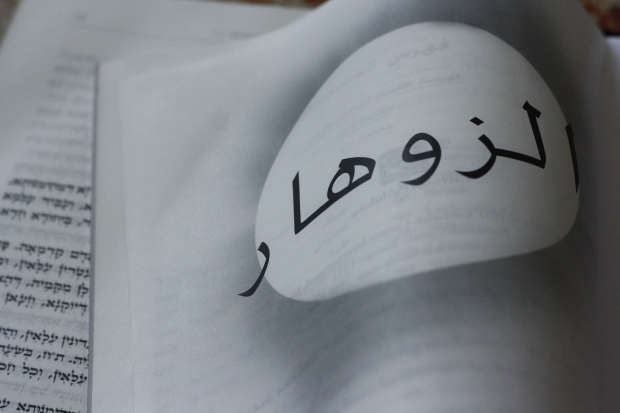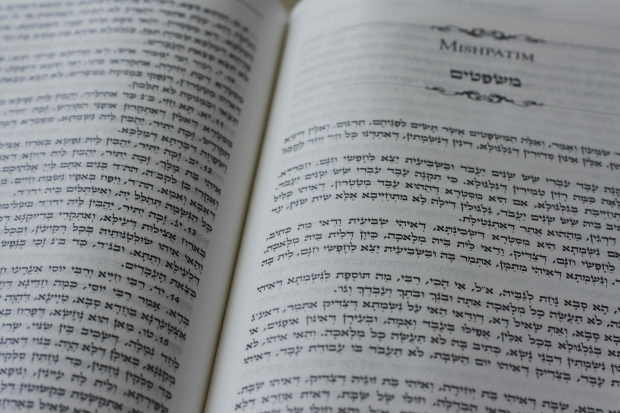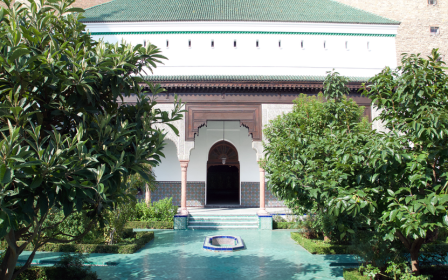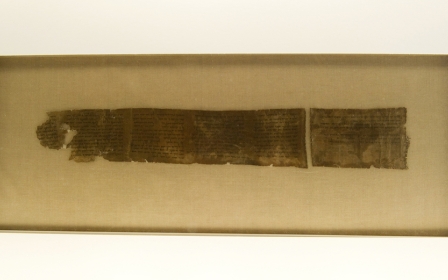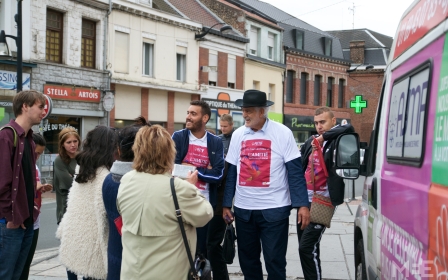Kabbalah on the Corniche: Jewish mysticism comes to Beirut
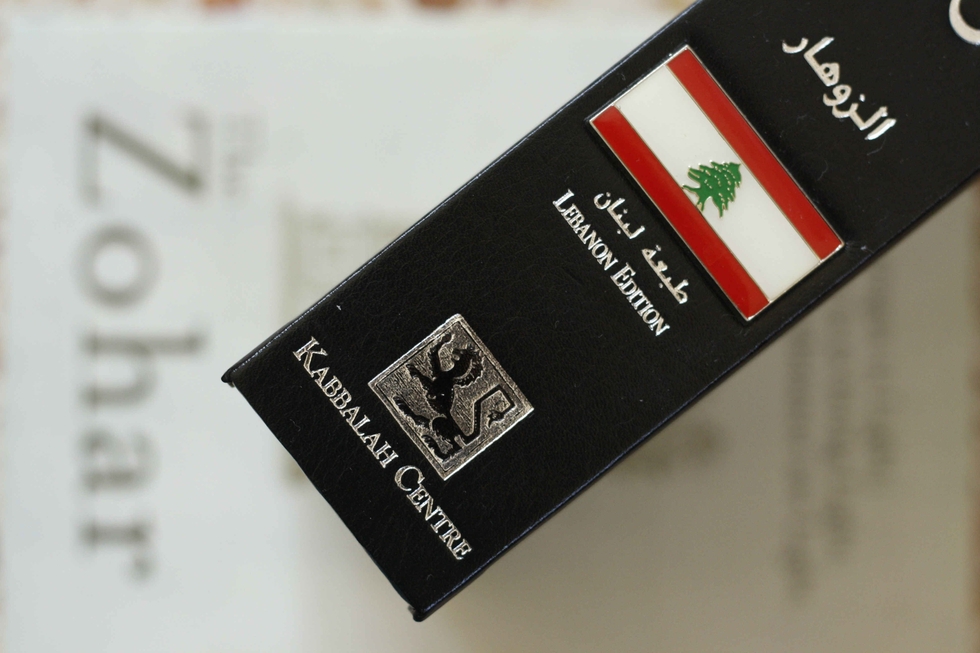
BEIRUT - In a country with 18 official sects, a new, ancient, form of spiritualism has joined the scene this week, as the Middle East's first Kabbalah centre outside of Israel has opened in Lebanon.
This Jewish mysticism does not attempt to compete with traditional, organised religions, according to Sara – not her real name – the leader of the classes.
Kabbalah is a "practical philosophy," and a "spiritual practice," she said over coffee in Beirut's downtown area, where the centre is situated.
Sara, who is an ordained imam, said Kabbalah is no longer explicitly Jewish.
"Even though many of its practitioners have been rabbis in the 21st century," Sara said, it has been increasingly reframed.
Rabbi Yehuda Ashlag, who contextualised the ancient text, the Zohar, for an early 20th-century audience, sought to introduce Kabbalah to the masses, and in so doing repackaged it as something less explicitly Jewish.
We let Muslims do their Muslim practises, and we let Christians do their Christian practises
- Sara, Kabbalah teacher
Perhaps most commonly associated by many today with Madonna, a famous practitioner of Kabbalah, the philosophy, Sara said, does still share the Jewish Mitzvah, or commandments.
"But as we are in Lebanon, we do not actually practise the rituals. We let Muslims do their Muslim practices, and we let Christians do their Christian practices," she said.
Sara herself is a practicing Muslim and her husband a practising Christian.
Practical philosophy
"It's absolutely compatible with my religion," Sara said, and, not only is it compatible but Kabbalah has allowed for a deeper understanding of Islam.
"I understand Islam and the teachings of the Prophet Mohammad, and I understand the teachings of the Quran, or I can actually decipher the Quran because I have studied the Zohar."
Citing a practical example, Sara recalled a time when she was praying for good fortune, but her anger prevented her success.
"There is a teaching in the Zohar that says anger diminishes your prosperity, and it says the same thing in the Quran – that people who are angry, God shall diminish their prosperity."
As she spooke, the Islamic call to prayer rang out across the square.
"That's very funny actually because they say that when you say something when the call to prayer comes on, then this is truthful."
The Jewish population of Lebanon today numbers around 2,000, according to the Lebanese Jewish Community Council.
Lebanese Jewish community
But Lebanese Jews are unlikely to publicly profess their devotion to Kabbalah, given suspicions about links with Israel, with which Lebanon is still technically at war. Israel occupied the country until 2000, and invaded and bombed the country in 2006, killing hundreds and destroying vital infrastructure.
Sara's students are a mix of Lebanese and foreigners, she said, but she does not ask about anyone's religion.
"Personally I wouldn't know if any of our members are Jewish," she said, but "I sure get a lot of people who are interested in Judaism, and I have to reinforce the idea that Kabbalah is not Judaism."
I sure get a lot of people who are interested in Judaism, and I have to reinforce the idea that Kabbalah is not Judaism
- Sara, Kabbalah teacher
"I do get a lot of interest that is – 'ooh, this is Jewish, let me infiltrate the secret society'."
Despite Sara's insistence of the chasm between Judaism and Kabbalah, she has faced criticism for the philosophy she pursues and teaches in her spare time – she is a psychotherapist by profession.
Facing criticism
"I come up against a lot of criticism all the time," Sara said, who teaches in an unofficial capacity.
As studying the Zohar includes looking at astronomy, astrology, numerology and health, amongst other aspects, some Muslims she has discussed Kabbalah with deem it "takfir" or a "falsehood against Islam".
Other people, she said, are the "really fearful type who are like – what's the connection with Israel?"
"There's no connection with Israel, whatsosver. I don't even know ... " she said, before trailing off, a hint of desperation in her voice.
When Sara prays at a mosque, she does not mention the word "Kabbalah," she said, and many of her family and friends do not know that she studies the philosophy. "I don't really go around and talk about it. I don't even advertise it to my friends."
Finding wisdom through ice-cream
Sara discovered Kabbalah while living in London as a teenager.
At a moment of "existential crisis" she went to her favourite ice-cream parlour, somewhere that had always provided emotional comfort in times of need.
"But the ice-cream place was now closed and it had turned into a Kabbalah centre.
"So I was thinking - what is this? I had never even heard the word."
A woman at the centre soon began explaining the principles of Kabbalah to Sara, and "it really answered, to a point, some of the very basic questions that I think every human has. And then I signed up".
Upon returning home to Lebanon, Sara discovered that people were informally studying Kabbalah, but "no one in Lebanon wanted to take the courage to form a group study, so I realised that this was something that I wanted to do".
The study group – something similar exists in Dubai – has now become formalised into a physical centre, of which there are several in Israel, Sara says.
Growing community
Kabbalah, which means "to receive, from the divine," has ultimately taught Sara that "you are given everything that you want in life, and it's your ego that stops it from getting it. This is how it's helped me understand my faith, or what Islam is teaching."
In a country such as Lebanon, where Sara said anger is commonplace, she believes people could do from learning how to deal with problems in a more thoughtful way.
"A lot of people in Lebanon experience a lot of anger," she said, and too often throw blame and accusations, without stopping to think about what they really want from life.
"My teacher used to tell me - it's a very strong soul that knows what they want. And it's an even stronger soul that actually goes for what they want."
For now, the centre - not part of the Kabbalah Center franchise - has about 15 students, but, Sara said, "it's a very fast growing community.
"Word of mouth works really well because people see the change in the other person and they want to know what's going on."
This article is available in French on Middle East Eye French edition.
New MEE newsletter: Jerusalem Dispatch
Sign up to get the latest insights and analysis on Israel-Palestine, alongside Turkey Unpacked and other MEE newsletters
Middle East Eye delivers independent and unrivalled coverage and analysis of the Middle East, North Africa and beyond. To learn more about republishing this content and the associated fees, please fill out this form. More about MEE can be found here.


